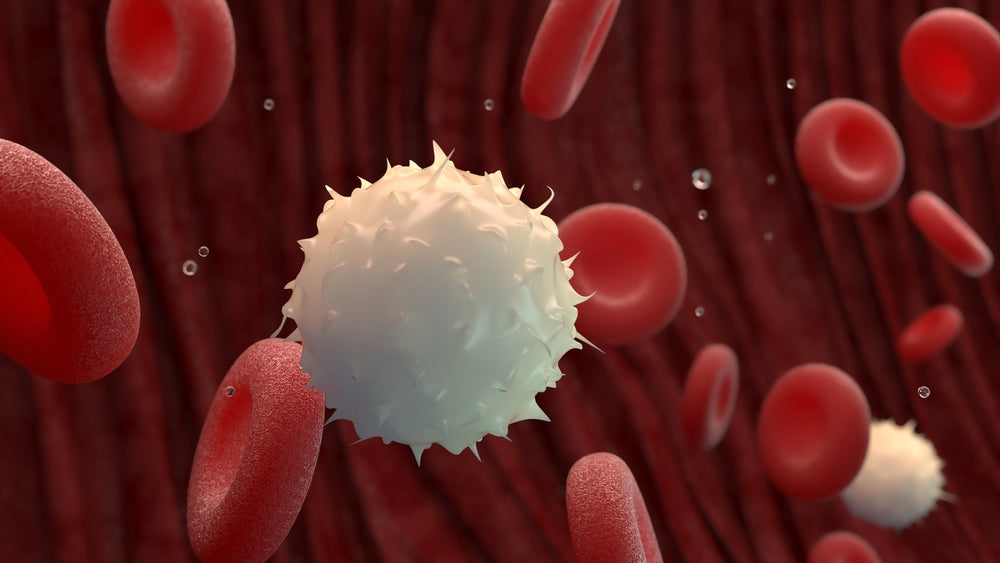Thymulin: A Peptide with Powerful Immune-Modulating and Anti-Inflammatory Benefits
Thymulin is a naturally occurring nonapeptide secreted by thymic epithelial cells. It plays an essential role in immune regulation and cellular communication. Originally identified as serum thymic factor (FTS), thymulin has been widely studied for its effects on T-cell function, immune homeostasis, and inflammation control.
At Revolution Health & Wellness Clinic, we explore advanced peptide therapies like thymulin to support patients with chronic inflammatory and immune-related conditions.
Mechanism of Action
Thymulin is biologically active when bound to zinc ions, forming a thymulin-zinc complex. Its primary actions include:
-
Modulating T-cell differentiation and maturation
Thymulin promotes the differentiation of immature lymphocytes into functional T-cells, essential for adaptive immune responses. -
Enhancing natural killer (NK) cell activity
Thymulin increases the cytotoxic activity of NK cells, supporting the body’s defense against infections and abnormal cells. -
Regulating cytokine production
It helps balance pro- and anti-inflammatory cytokines, reducing excessive inflammatory responses and supporting immune homeostasis. -
Neuroendocrine effects
Emerging evidence shows that thymulin may also influence the hypothalamic-pituitary-adrenal (HPA) axis, helping regulate stress responses and systemic inflammation.
Benefits of Thymulin Therapy
1. Immune System Regulation
Thymulin restores and enhances immune function, especially in individuals with compromised or dysregulated immune systems due to aging, chronic illness, or autoimmune conditions.
2. Anti-Inflammatory Properties
Studies demonstrate thymulin’s ability to suppress excessive inflammatory reactions, making it useful in conditions characterized by chronic inflammation.
3. Support in Autoimmune Disorders
By modulating T-cell responses, thymulin may help reduce autoimmune flare-ups and improve symptoms in diseases such as rheumatoid arthritis and lupus.
4. Adjunct Therapy in Viral Infections
Thymulin enhances antiviral immune responses, showing potential in combating viral infections including Epstein-Barr virus (EBV), herpes viruses, and others.
5. Potential Neuroprotective Effects
Preliminary research indicates thymulin may reduce neuroinflammation and oxidative stress, offering potential therapeutic value in neurodegenerative diseases.
Conditions That May Benefit from Thymulin Therapy
-
Chronic infections and immune deficiencies
-
Autoimmune disorders (e.g., rheumatoid arthritis, systemic lupus erythematosus)
-
Chronic fatigue syndrome
-
Long-haul viral syndromes
-
Inflammatory skin conditions (e.g., psoriasis, eczema)
-
Adjunct support for cancer patients undergoing chemotherapy
Scientific Research and Evidence
-
Dardenne et al. (1974) first isolated thymulin and demonstrated its role in T-cell maturation (Proceedings of the National Academy of Sciences).
-
Savino (2006) reviewed the thymus’ role and thymulin’s contribution to immune and neuroendocrine regulation (Frontiers in Bioscience).
-
Goya et al. (2007) studied thymulin’s anti-inflammatory effects in animal models of sepsis and inflammation (Peptides).
-
Fabris et al. (2008) highlighted thymulin’s protective effects against oxidative stress and neuroinflammation (Neuroimmunomodulation).
While human clinical trials remain limited, thymulin’s safety and promising biological activity position it as a valuable tool in functional and integrative medicine.
Conclusion
Thymulin offers a unique combination of immune support, inflammation control, and potential neuroprotection. It is well-tolerated and highly compatible with other peptide and lifestyle-based interventions. At Revolution Health & Wellness Clinic, we use thymulin as part of personalized treatment protocols to help patients restore balance, resilience, and well-being.
Schedule Your Consultation Today
If you are struggling with chronic inflammation, immune dysregulation, or long-term recovery from infections, peptide therapy with thymulin may offer the support you need.
Contact Revolution Health & Wellness Clinic today to schedule your personalized consultation and learn more about this powerful therapy.
References
-
Dardenne M, Bach JF. Thymulin, a thymic hormone: molecular and biological properties. Proc Natl Acad Sci U S A. 1974;71(7):2618–2622.
-
Savino W. The thymus is a common target organ in infectious diseases. Front Biosci. 2006;11:2275-2291.
-
Goya RG, et al. Thymulin anti-inflammatory properties in murine models of sepsis and inflammation. Peptides. 2007;28(4):826-832.
-
Fabris N, et al. Thymulin as an antioxidant and anti-inflammatory agent in neurodegenerative conditions. Neuroimmunomodulation. 2008;15(1):23-30.


